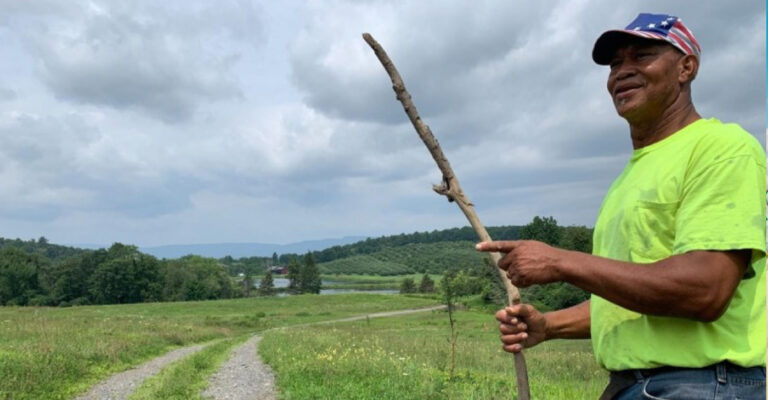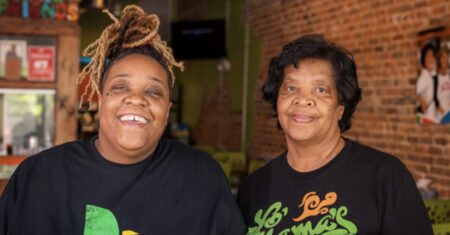By Megan Sayles
AFRO Staff Writer
msayles@afro.com
New York farmer David Haughton had hoped the end of the COVID-19 pandemic would bring relief from his revenue challenges. But just as he began to recover, new funding gaps under the 47th president’s administration brought hardship back to his farm. In March 2025, the U.S. Department of Agriculture (USDA) announced that it would cancel the Local Food Purchase Assistance (LFPA) Cooperative Agreement Program, which had helped farmers like Haughton sell produce while supplying fresh food to communities in need.
Haughton’s major customers, like The Campaign Against Hunger and GrowNYC, were directly affected.
“Because of the cut, we actually lost 60 percent of our market,” said Haughton. “Some of them dropped out. Some of them we will have to wait a period of time to get money [from]. Some of them still owe me money.”
The LFPA program was established in 2021 under the leadership of former President Joe Biden to assist farmers in addressing pandemic-related challenges. It provided funding to states to purchase produce from local farmers and then distribute it to food banks and other hunger-relief organizations. The program especially sought to support small and minority farmers, who often face greater obstacles than their counterparts.
When LFPA was terminated earlier this year, local organizations no longer had the funding to pay for Haughton’s produce, putting a serious strain on his cash flow. Suddenly, the 35-acre property he had cultivated since 1995—following the death of his son—was at risk.
“We almost lost our home and our property because we couldn’t make the mortgage payments,” said Haughton.
Because he is a small, Black farmer, securing a loan to help with his financial challenges proved difficult. It was the Black Farmer Fund (BFF) that provided Haughton a lifeline. The organization was created by farmer activists in 2017 to provide low-interest loans, grants, and technical assistance to Black farmers and other food businesses.
Myra Marcellin, investment director at BFF, said that access to capital and resources remains the top obstacle to the sustainability of Black farmers’ operations—especially in light of funding changes under the 47th president’s administration.
“Some of the grants that have been canceled and paused have really impacted Black farmers the most,” said Marcellin.
For many farmers, like Haughton, that means the difference between keeping their land and losing it. Marcellin said BFF uses its $20 million integrated capital fund to help Black farmers scale their operations and economic and social impact.
“With folks, like farmer Dave, they need support relative to marketing, branding, as well as financial and production support because they have to grow based on demand,” said Marcellin. “As far as the Black Farmers Fund, we provide those levels of technical assistance to help them identify some of these challenges and areas of need so that they can understand their business better and figure out what they need to focus on to optimize their growth potential.”
BFF ultimately provided Haughton with a grant that helped him save both his farm and home. He was also able to buy new equipment and hire a few part-time workers.
However, in August 2025, a fire ravaged his home—destroying part of the house, ruining personal belongings and supplies, and flooding the basement. Haughton has set up a GoFundMe page to help with his recovery.
Despite the struggles he’s encountered, Haughton remains committed to being a farmer. It’s been in his blood since growing up on a 14-acre farm in Jamaica.
“Farmers are heroes, and farmers feed heroes,” said Haughton. “We face the most challenging times, whether it’s climate change or the market falling. I wish that the federal government or even some of these financial institutions wouldn’t just look at us but help us.”







